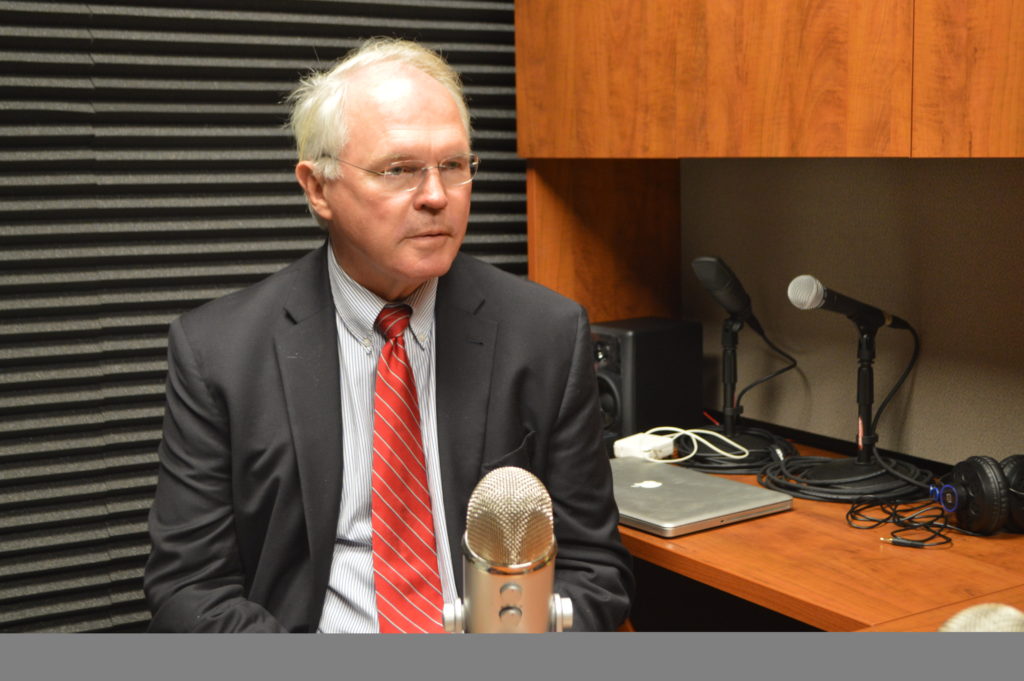The Peninsula
An Interview with Ambassador Christopher Hill on the Nuclear Talks with North Korea
Published July 16, 2018
Category: North Korea

KEI Communications Director Jenna Gibson, host of the KEI podcast Korean Kontext, recently interviewed Ambassador Christopher Hill, former Assistant Secretary of State for East Asian and Pacific Affairs.
The following is a partial transcript of that conversation, which has been edited for space. The rest of the episode can be found here.
Gibson: Since you’ve seen some of these things before in terms of negotiating with the North Koreans, what do you see in today’s negotiations that is maybe similar or different than when you were working on similar issues?
Ambassador Hill: There’s no question there are some familiar patterns, but I think there are also some new elements to it. And one of the new elements was of course the American President, President Trump, being prepared to meet with the North Korean President, that was a first. The North Koreans have over the years suggested that they would like to meet with the American president, but it’s first time that the American president said yes. So that was very different.
What is not different, however, is that North Korea really has a great deal of difficulty coming forward and saying it’ll do the things that we would like to see done, namely denuclearization. I think North Korea also has some difficulty explaining what it is they want, and they often leave us kind of negotiating with ourselves – is it a peace treaty they want, is it something to do with economic assistance – what do they want? And I think to some extent that whole issue has bedeviled this process in the days and weeks after the Singapore Summit.
Gibson: What was your assessment of the Singapore Statement?
Ambassador Hill: I think the statement that was agreed to at the Six Party Talks in 2005 was a much better statement, and there are a number of reasons for that – it very successfully laid out some of the issues and laid out the mutual obligations of the various parties. But it also represented not only a lot of work but a lot of time in doing that work, and I think to some extent Singapore suffered by a sense that perhaps they got going on it much too late.
So it was a statement that kind of touched some of the issues that were drilled into in Beijing in 2005, but in kind of just touching those issues, I don’t think it did a very good job of making it clear what the various obligations are. So I think it was a statement that got the process going, and now we have to see if the diplomacy can flesh out some of those issues.
Gibson: What are some of the pros and cons of the top-down approach?
Ambassador Hill: The pros are obvious – if you get some agreement, the agreement should stick, because it’s being done at the top. The cons are also evident – if they can’t agree on something, what are you going to do? Push it down to lower levels for more work? So I think there’s a problem overall with the idea of having this senior approach.
And moreover, every time there’s a failure to agree on something, that failure looms very large in everyone’s’ minds. It’s one thing to have an assistant secretary come back from a trip empty handed, it’s another thing to have the Secretary of State come back from a trip empty handed. So I think the problem is the failures are magnified, perhaps even more than the successes are.
Gibson: Is it important to get regional players such as China, Japan, and Russia directly involved and if so, how?
Ambassador Hill: If you look at the Six Party statement of September 2005, which had some similar elements to the Singapore Statement, and it had a lot of other elements there. It spoke about normalization of North Korean-Japanese relations. Obviously, that wasn’t touched in Singapore. Again, I think peace and security can be achieved in Northeast Asia, and I continue to be an optimist about that. But we have to understand what has driven the crisis, and it’s not just the U.S. and NK, there are other things going on.
I think to understand what happened in the Six Parties, it was not a question of the six delegations all meeting together simultaneously, I think that would have been a very difficult format to pursue. What it was, was essentially a platform on which the various delegations could meet with each other whether one-on-one, one-on-two, three-on-one, whatever was necessary. I think that was beneficial.
But again we have a president who wants to look at this with a very fresh set of eyes, and not have his vision clouded by the problems and events of the past.
